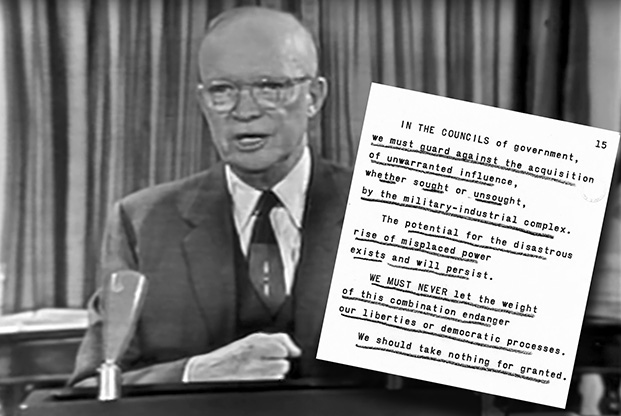
OPINION: Successes in Afghanistan and Vietnam
OPINION

When US Secretary of State Antony Blinken said this is “not Saigon”, everyone rightly scoffed. It was a mirror image right down to near identical photos of US helicopters evacuating the embassy in Kabul just as in Saigon 46 years earlier – another delusional re-run of a failed US foreign policy. When will they ever learn?
But there is another way of looking at this. Vietnam, Afghanistan and Iraq were highly successful missions. It just depends on whose eyes you are looking through.
The big mistake is to imagine that the US mission in these countries was to ensure peace, liberty, democracy and prosperity for their people.
Some US entities learned a lot from Vietnam and applied it in Afghanistan and Iraq.
This might sound a little off the planet, but we must go back to 1961 to get a clearer picture and quote Republican President Dwight Eisenhower’s farewell address:
“Until the latest of our world conflicts [World War II], the United States had no armaments industry. [Now] we have been compelled to create a permanent armaments industry of vast proportions . . . .
“Now this conjunction of an immense military establishment and a large arms industry is new in the American experience. The total influence – economic, political, even spiritual – is felt in every city, every Statehouse, every office of the Federal government. We recognize the imperative need for this development. Yet, we must not fail to comprehend its grave implications. Our toil, resources, and livelihood are all involved. So is the very structure of our society.
“In the councils of government, we must guard against the acquisition of unwarranted influence, whether sought or unsought, by the military-industrial complex. The potential for the disastrous rise of misplaced power exists and will persist. We must never let the weight of this combination endanger our liberties or democratic processes. We should take nothing for granted.
“Only an alert and knowledgeable citizenry can compel the proper meshing of the huge industrial and military machinery of defense with our peaceful methods and goals, so that security and liberty may prosper together.”
Alas, those in the “councils of government” did not heed the warning. To the contrary, they fell under the spell of the military-industrial complex. Subsequent Presidents, up to but not including Trump, have done its bidding and enriched the management and shareholders of the weapons makers and the vast array of suppliers of equipment, food, clothes and shelter to the military.
Those Presidents were all supporters of big military spending. Meanwhile, the corporations with labyrinthal efficiency set up their manufacturing and supply chains in as many congressional districts as they could. They plied their influence in the Washington beltway. None in the councils of government dared defy them.
The military-industrial complex and those elected in both parties and those in the bureaucracy symbiotically egged each other on to ramp up the US military presence in Vietnam.
The US spent $US1 trillion in today’s money in Vietnam. A great deal of that went in profits to US corporations. Only 17 per cent went to nation-building in Vietnam, and much of that went to US contractors.
For the military-industrial complex it was a successful war. And they learned lessons from it.
For them the war ended too early. Profits fell.
The main lessons for them were that Vietnam was a television war. The cameras went everywhere. It also required conscription. Those two things undermine public apathy. And public apathy is essential for the prosecution of a profitable war.
TV and conscription made for, in Eisenhower’s words “an alert and knowledgeable citizenry”. So, for the military-industrial complex, the Vietnam war was a dismally short war.
In the words of George Orwell in the book 1984, “The war is not meant to be won, it is meant to be continuous.”
Moreover, it is meant to be far away and beyond the attention of the citizenry.
Next time round, journalists would be embedded with (and controlled by) the military. There would be no conscription. There would be proud mothers and daughters, not angry ones. And the rest of the population would be oblivious, apathetic, inattentive and unknowledgeable.
The military-industrial complex had a very successful 20-year war in Afghanistan, greatly profiting from the $2 trillion the US spent there, and a similarly successful stint in Iraq.
The money did not go to the Vietnamese, the Iraqis or Afghans. It went to the likes of Lockheed and Halliburton.
The only President since Eisenhower to see and seek to stamp out the influence of the military-industrial complex was Trump.
Like Eisenhower, Trump did not come from the political establishment. He saw the wars as a waste of money and vowed to end them. When Obama tried to do the same in 2009, the military-industrial complex conned him into a “surge” of 17,000 more US troops.
Trump ended the Afghan war. It was about the only good thing he did in his presidency. It was never going to go smoothly. The military-industrial complex even conned President Joe Biden into believing that all the money it had wasted on training an Afghan army and police force would enable them to hold off the Taliban for a reasonable time for an evacuation. But there was nothing there.
At the end we shake our head and look at the “cost” and wonder how it took so long to get out. We should look at it the other way. Who profited from the wars and why did the US (and Australia) take such a short time to go in?
The military-industrial complex keeps learning and profiting. Now it’s remote warfare instead of boots on the ground.
The citizenry must get alert to this. It should demand that the US stop its arms exports and prosecution of continuous war. And Australia’s citizenry likewise.
--------
Crispin Hull is a current columnist and the former Editor of the Canberra Times.
Thank you!
Newsport thanks its advertising partners for their support in the delivery of daily community news to the Douglas Shire. Public interest journalism is a fundamental part of every community.
Got a news tip? Let us know! Send your news tips or submit a letter to the editor here.
* Comments are the opinions of readers and do not represent the views of Newsport, its staff or affiliates. Reader comments on Newsport are moderated before publication to promote valuable, civil, and healthy community debate. Visit our comment guidelines if your comment has not been approved for publication.
